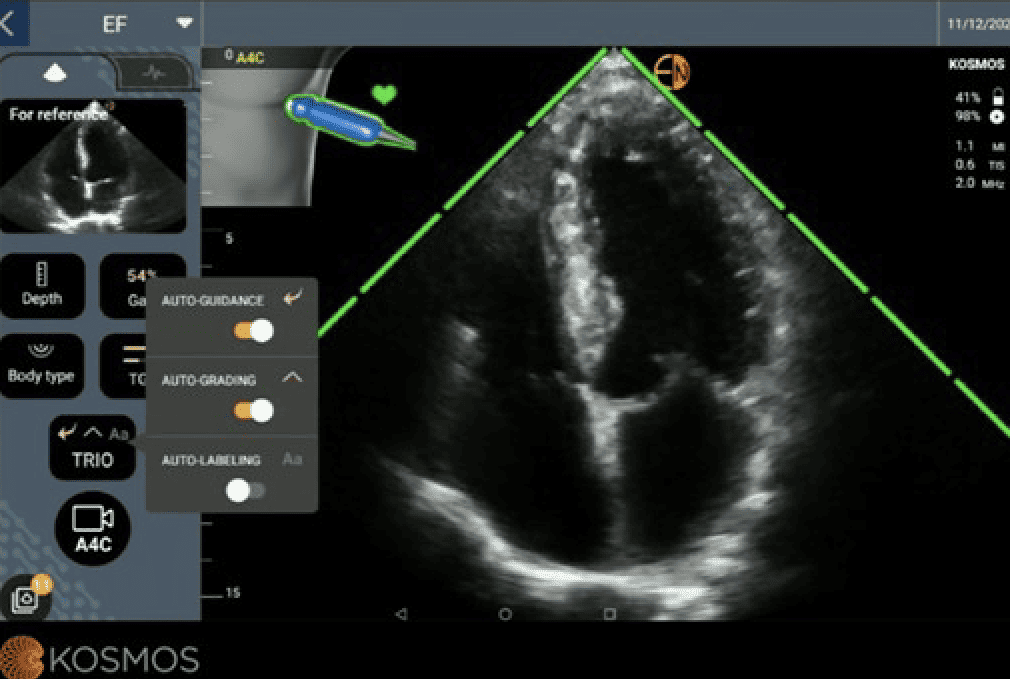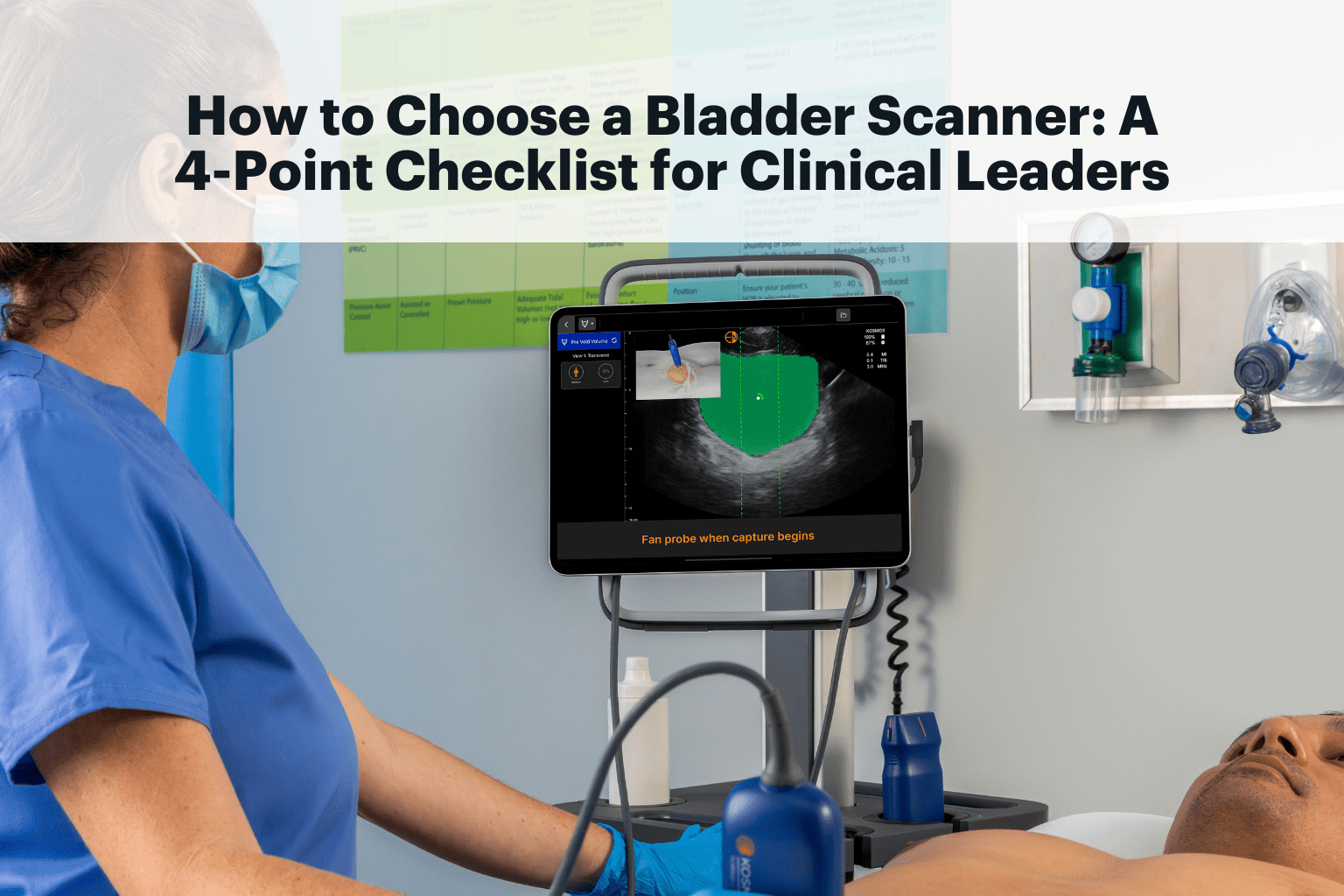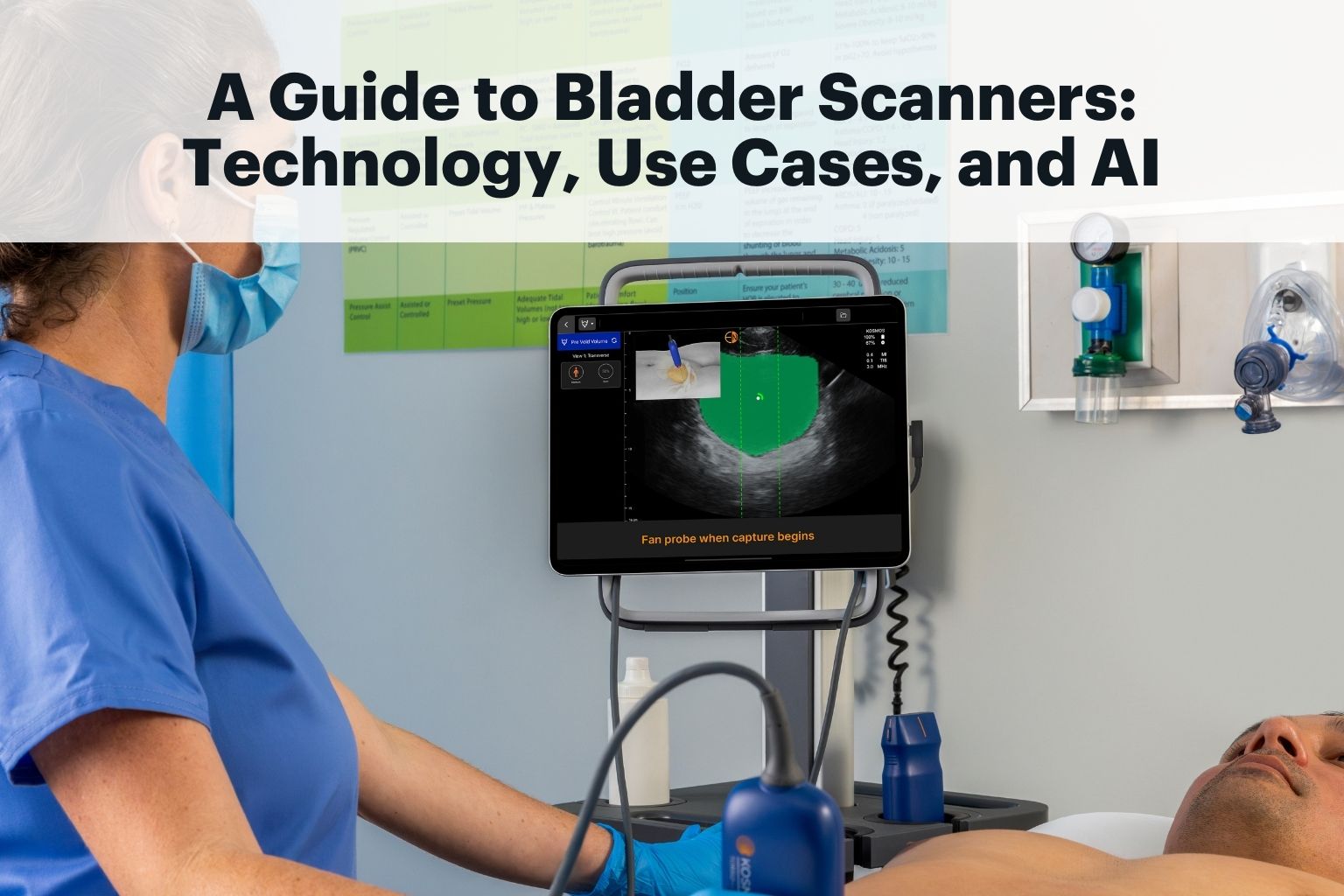Can AI Improve Heart Monitoring for Chemo Patients?
Clinical study shows promise for AI in heart monitoring of cancer patients
How can artificial intelligence (AI) improve cardiac care for cancer patients undergoing potentially cardiotoxic chemotherapy? A clinical study recently published in the European Heart Journal – Cardiovascular Imaging suggests that the integration of AI with Point-of-Care ultrasound may represent an advancement in the ongoing monitoring of cardiac function.
In the study, oncology staff including nurses and doctors used the Kosmos handheld ultrasound device enabled with AI algorithms to assess left ventricular ejection fraction (LVEF) in over 100 cancer patients pre-chemo. The Kosmos AI system is capable of obtaining ejection fraction (EF) in less than 20 seconds compared to the 2-3 minutes required for calculating EF on a cart-based echo machine.* With brief training in acquiring heart images, the oncology team was able to successfully obtain diagnostic quality scans and have the AI automatically calculate LVEF on the spot.
Even more impressive, the AI-derived LVEF measurements closely matched those determined by standard echocardiography performed by expert cardiologists.

The authors concluded that the “Calculation of automated LVEF by oncology staff was feasible using AI-enabled Kosmos in a selected patient population. Detection of impaired LVEF was possible with good accuracy. These findings show clinical potential to improve the quality of care for oncology patients.”
The findings of this study suggest that utilizing AI-powered ultrasound for LVEF assessment in oncology workflow can provide a range of benefits. With frequent and longitudinal monitoring of LVEF at the Point-of-Care, this approach might allow for earlier detection of cardiac changes from chemotherapy. Furthermore, personalized medicine can be optimized through this approach, and the need for formal echocardiography referrals might be reduced. It’s important to note that more extensive studies are necessary to validate accuracy and impact across various settings. Nevertheless, the early findings show potential for AI to enable smarter, proactive cardiac screening in chemo patients.
Rather than replace cardiologists, this technology allows them to focus their expertise where it’s most needed. Additionally, giving other members of the care team access to AI tools fosters a collaborative approach that benefits patients.
So for anyone interested in innovations that blend cardiology, oncology, human-AI partnerships, and Point-of-Care ultrasound, take note of this research! Exciting times are ahead in using AI to reshape collaborative cardiac imaging and monitoring.
You can read the complete study here
To learn how your organization can start using Kosmos for LVEF measurements and more, get in touch with an expert on our team here.




